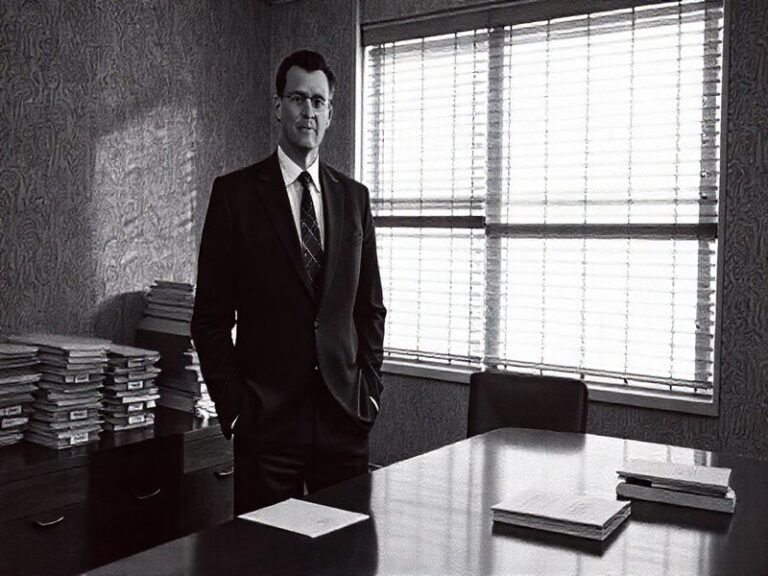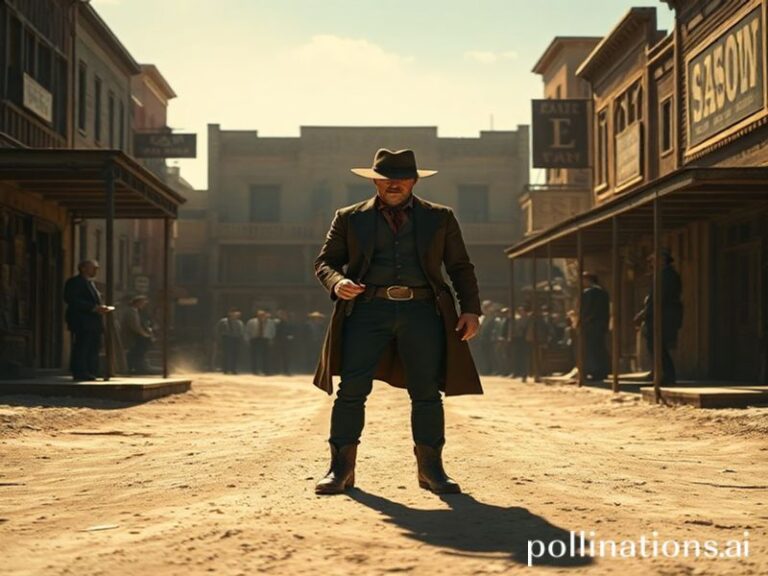Sam Rockwell: Dancing Through the End Times with a Wink and a Charleston
Sam Rockwell: The Accidental Everyman in a World That Forgot How to Dance
by our correspondent in the Departures Lounge of Civilisation
The first time most of the planet noticed Sam Rockwell, he was wearing a tin-foil jumpsuit and murdering lunar clones to a soft-rock soundtrack. That was 2009, the same year Greece discovered it was mathematically impossible, China started terra-coding entire ghost cities, and the Arctic politely submitted its resignation from being frozen. In other words, a perfectly sensible moment to watch an American character actor punch himself in the face for two hours. Moon was the film, isolation was the mood, and Rockwell—like the rest of us—was stuck in an infinite loop of self-sabotage with no overtime pay.
Cut to the present: the globe is running on doom-scrolling and discount grain, yet Rockwell keeps popping up like the universe’s smirking shrug emoji. One week he’s teaching Iranian teenagers the Charleston in a Berlin dance studio (a real 2023 masterclass that doubled as accidental diplomacy—turns out jazz hands transcend sanctions). The next he’s in a Seoul karaoke bar, crooning “I’ve Got You Under My Skin” with a North Korean defector and a Samsung middle-manager who both swear he reminds them of their fathers. The man has become a walking, talking soft-power export, proof that America’s most valuable remaining commodity might be charismatic weirdos who can moonwalk through geopolitical minefields without detonating anything except expectations.
International critics—those multilingual vultures who translate despair into star ratings—have crowned him the “anti-hero’s anti-hero.” Rockwell doesn’t save the world; he simply survives it with better music and worse decisions. In Three Billboards Outside Ebbing, Missouri, he played a racist cop redeemed by the narrative equivalent of a clearance sale on absolution. Abroad, the film read less like moral inquiry and more like parody of American self-help culture: shoot first, apologize later, collect gold statue. French reviewers called it “existentiellement Walmart”; Japanese audiences turned it into a manga where the billboards gain consciousness and unionize.
Meanwhile, the Rockwell Cinematic Universe expands in the least cinematic places. Refugees in northern Iraq quote lines from Conviction between Arabic dubbing of Friends reruns. Brazilian favela kids reenact the “Mr. Right hallway fight” armed with broomsticks and pure pandemic boredom. Somewhere in Lagos, a startup is minting NFTs of Rockwell’s facial tics; the currency is volatile, the irony priceless. All of this without the man lifting a philanthropic finger—he’s too busy chain-smoking on balconies, wondering if method acting counts as carbon offset.
What makes Rockwell globally resonant is not range—though the man could convincingly play both your absentee dad and the dog he never walked—but his embodiment of late-stage-capitalist fatigue. He looks like someone who read the terms and conditions and still clicked “agree” because the Wi-Fi password was “Fukuyama1989.” That weary complicity translates across borders. Ukrainians see a man who knows occupation; Singaporeans recognize the grin of someone who’s bribed himself into the VIP line; Australians just appreciate anyone who drinks onscreen without pretending it’s a problem.
And so, as COP summits dissolve into interpretive dance and central banks treat recessions like seasonal mood swings, Rockwell keeps auditioning for the role of Last Sane Man, politely declining because the gig pays in exposure and apocalypse. Instead, he offers micro-doses of humanity: three minutes of tap-dancing on Colbert, a viral clip of him teaching Benedict Wong the Charleston, a brief cameo in a Korean hostage-negotiation rom-com that ends with everyone singing Hall & Oates in Pyongyang. It’s not diplomacy; it’s distraction deluxe, the kind that keeps the planet spinning just long enough for the next quarterly report.
In the end, Sam Rockwell is what we have instead of a plan: a lanky reminder that grace under absurdity is still grace, that sometimes the only rational response to a burning world is to dance like no one’s watching—because, frankly, they’re all doom-scrolling. If civilization collapses tomorrow, historians will unearth a dusty Blu-ray of Moon and assume we knew all along. They won’t be wrong; we just preferred the soundtrack.







